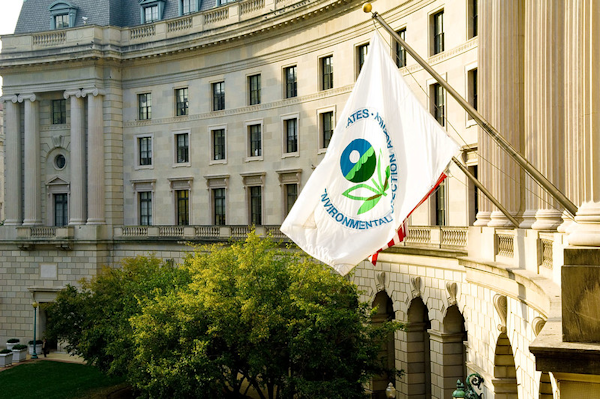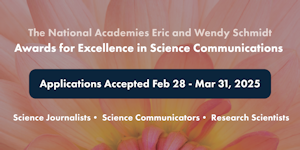SEJournal Online is the digital news magazine of the Society of Environmental Journalists. Learn more about SEJournal Online, including submission, subscription and advertising information.
 |
 |
| The U.S. Environmental Protection Agency has proposed a new scientific integrity policy that covers contact between reporters and scientists. Photo: EPA, United States government work via Flickr Creative Commons. |
WatchDog Opinion: Will New EPA Policy Make It Easier To Interview Its Experts?
By Joseph A. Davis
The single biggest complaint members of the Society of Environmental Journalists have against the U.S. Environmental Protection Agency’s press office, historically, is how hard it is to interview agency scientists. Once again, the EPA has a chance to redeem itself. But will it?
SEJ and this column have harangued and formally protested to the EPA on this issue many times over many years and many administrations — without much progress. Now comes another chance.
EPA does not have a formal
published press policy; the
closest thing it does have is
its scientific integrity policy.
The EPA does not have a formal published press policy; the closest thing it does have is its scientific integrity policy, which covers contact between agency scientists and reporters. Now, the EPA is proposing revisions to its SIP and not everybody thinks it is an improvement.
The new proposal was published in the Federal Register on Jan. 24 (easier to download here). If you want to follow the discussion, check Docket No. EPA–HQ–ORD–2023–0240. It’s open for comment until Feb. 23. That’s not much time.
The proposed SIP is somewhat better for journalists in a few ways — but it really doesn’t fix most of what’s broken (at least the part that affects journalists). So far, SEJ has not taken an official position.
First, the good news
The EPA was into scientific integrity before it was cool; in fact, before there was any executive branch directive for agency SIPs.
And over several iterations, the EPA’s SIP has gotten better — at least for the science and the scientists. The EPA’s scientific integrity official, Francesca Grifo, has done a good job in difficult circumstances. It must be said that most EPA scientists have integrity.
There are many significant updates in the draft SIP. It tries to address artificial intelligence, Indigenous knowledge and social media, for example.
This latest iteration of the SIP finally abandons the assumption (or insinuation or implication), found in earlier SIPs, that the main problem was that scientists were the ones cheating. Instead, it acknowledges the bigger problem: The political appointees overseeing EPA science are the worst offenders at spinning, burying, delaying and corrupting EPA science.
One thing we like about this
latest draft is that it calls out
the politicos more starkly.
The WatchDog is aware that it is the political appointees — again — who put the worst barriers between scientists and journalists. This includes press officers. One thing we like about this latest draft is that it calls out the politicos more starkly and declares that scientific integrity rules apply to them, too.
The proposed SIP says it aims to “Ensure that scientific findings and products are not suppressed, unreasonably delayed, or altered for non-scientific reasons or due to political interference or inappropriate influence.”
While the WatchDog would avoid sweeping generalizations, we want to acknowledge that there actually have been scientists at the EPA who have been “captured” by the industries the EPA regulates. See, for example, the prize-winning reporting of Sharon Lerner (now at ProPublica).
But there is bad news
Perhaps we should be grateful that the proposed draft SIP does not require scientists to get press office permission before talking to reporters — or to have a press office “minder” sit in on interviews. But we are not. Scientists still tell reporters that they can’t be interviewed without press office permission.
The SIP says the EPA should: “Support, but not require, Agency employees to participate in communications with the media regarding their scientific activities and areas of scientific expertise in their official capacities at EPA. Agency employees will notify their supervisors or other appropriate officials after responding to media inquiries in their official capacity.”
After is better than before, but not by much.
The draft SIP also posits a “Personal Views Exception, which means they are allowed to communicate with the media or the public in their personal capacities subject to the applicable federal ethics rules including misuse of position.”
It then goes on with other caveats, which make it sound scary.
The draft would also “Require that covered entities, including public affairs officers, not alter nor direct that Agency experts alter their scientific or technological findings or the presentation of those findings in a manner that may compromise the objectivity or accurate representation of the scientific information.”
If a press officer is sitting between
a reporter and the scientist,
it can be a wet blanket.
But if a press officer is sitting — even silently — between a reporter and the scientist they are interviewing, it can be a wet blanket.
Possibly the biggest complaint of reporters who call the press office is that responses often come too late to be of use. The draft says the EPA should “Make every effort to provide knowledgeable scientists as spokespersons in response to media requests about the scientific or technological aspects of EPA’s work.”
“Every effort” is not the same as “by deadline.”
Then it adds, “This does not include describing the policy implications of such work.” Which is often the whole point.
Early reaction is skeptical
The whistleblower support group Public Employees for Environmental Responsibility, which had defended a group of scientists who complained about failures of integrity at the EPA, pretty much nailed its response with a release headlined “Big Hat, No Cattle.”
PEER’s biggest criticism of the SIP was that it “lacks any concrete rules or procedures” to implement or enforce its standards.
“A scientific integrity policy without enforcement mechanisms is just a bunch of hot air,” said Director of Pacific PEER Jeff Ruch.
Another group long involved with scientific integrity at the EPA, the Union of Concerned Scientists, saw the draft SIP as a mixed bag. UCS senior analyst Anita Desikan wrote that the EPA’s SIP was better than those of most agencies.
But she noted “a lack of language laying how agency staff in higher positions of power — like political appointees — would be held accountable if they are found to have violated the scientific integrity policy.”
Timothy Wheeler, who chairs SEJ’s Freedom of Information Task Force, doubts the SIP will do much for journalists. “You can't have scientific integrity in government if its scientists and other employees are muzzled, intimidated or just discouraged from communicating openly with each other or with the public, including journalists.”
‘The guts of the policy statement still
convey a mixed message, at best.’
— Timothy Wheeler,
SEJ Freedom of Information Task Force
Wheeler noted the SIP’s invocation of the 1983 "fishbowl memo" on transparency. “But the details matter, and the guts of the policy statement still convey a mixed message, at best,” said Wheeler. “The statement says it is EPA policy to ‘ensure that scientific findings and products are not suppressed, unreasonably delayed, or altered.’ Well and good. Yet later in that same section are various directives to ‘adhere to Agency ... clearance procedures’ in interacting with news media and to ‘notify and coordinate with appropriate Agency offices’ in providing information to the public and media.”
Wheeler added that what would be truly transparent is a policy that, “emphatically, clearly states that EPA scientists and employees are strongly encouraged to communicate with the public and news media about their work and to share their knowledge and expertise.”
He also said that while there are agency resources available to help EPA staff respond to media inquiries, it would help if they were not required either to get prior clearance before communicating with journalists or to report to supervisors afterward on what they were asked or said.
Lurking in the background is an awareness by many transparency advocates that former President Donald Trump could win the 2024 presidential election. Most of the worst violations of scientific integrity at the EPA came during Trump’s presidency. If the SIP is not finalized well before the 2024 election, it might be vulnerable to repeal under the Congressional Review Act.
Joseph A. Davis is a freelance writer/editor in Washington, D.C. who has been writing about the environment since 1976. He writes SEJournal Online's TipSheet, Reporter's Toolbox and Issue Backgrounder, and curates SEJ's weekday news headlines service EJToday and @EJTodayNews. Davis also directs SEJ's Freedom of Information Project and writes the WatchDog opinion column.
* From the weekly news magazine SEJournal Online, Vol. 9, No. 7. Content from each new issue of SEJournal Online is available to the public via the SEJournal Online main page. Subscribe to the e-newsletter here. And see past issues of the SEJournal archived here.













 Advertisement
Advertisement 




